Today, we have the privilege of speaking with a talented tattoo artist who has found a way to combine her love for art and travel through her co-founding of The Remote Tour. This tattoo program brings together tattoo artists from around the globe to create unique pieces and learn from one another's techniques. In this interview, we discuss her background in art, her experience in the tattoo industry, and her passion for travel. We also touch on her work with The Remote Tour, which has provided her with many opportunities to connect with other tattoo artists and bring new styles into her work. As an artist who draws inspiration from mysticism and magic realism, she shares her thoughts on the intersection of art and storytelling, and how this influences her tattoos.
Meet Amalie!
Tell us a little about yourself. Why did you decide to become a tattoo artist? What were you doing before tattooing?
- I’ve been drawing my entire life, and I always knew that I ideally wanted to do something, where that played a big role in my everyday life. When you’re a kid, and you say you want to draw for a living, the usual response is “okay that’s cute, but find a Plan B” so the idea that I could literally draw for a living seemed unrealistic. Because of this, I concluded that I had to find a profession in which I would be in close proximity to art, but in a different way than I originally intended, and that’s when I started studying art history.
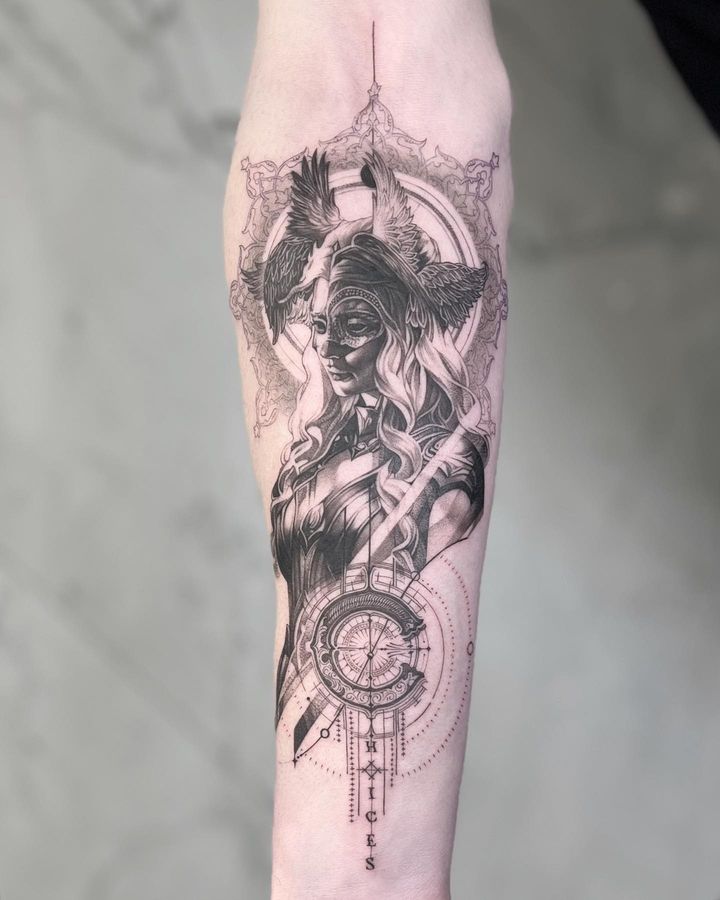
How did your career start? Who was your teacher?Were there any difficulties in mastering this profession?
- I, like many others my age, was infatuated with Miami ink, and other tattoo related programs that followed in their footsteps. During my last years of high school, I had gotten the idea that I should become a tattooer. However, as I mentioned before, this didn’t seem like something that was in the cards for me. So even though that was what I wanted in my heart of hearts, I didn’t know anyone with tattoos, my family didn’t see the appeal, and I was too much of a scaredy-cat to actually walk into a tattoo studio and enquire about the opportunities to become an apprentice.
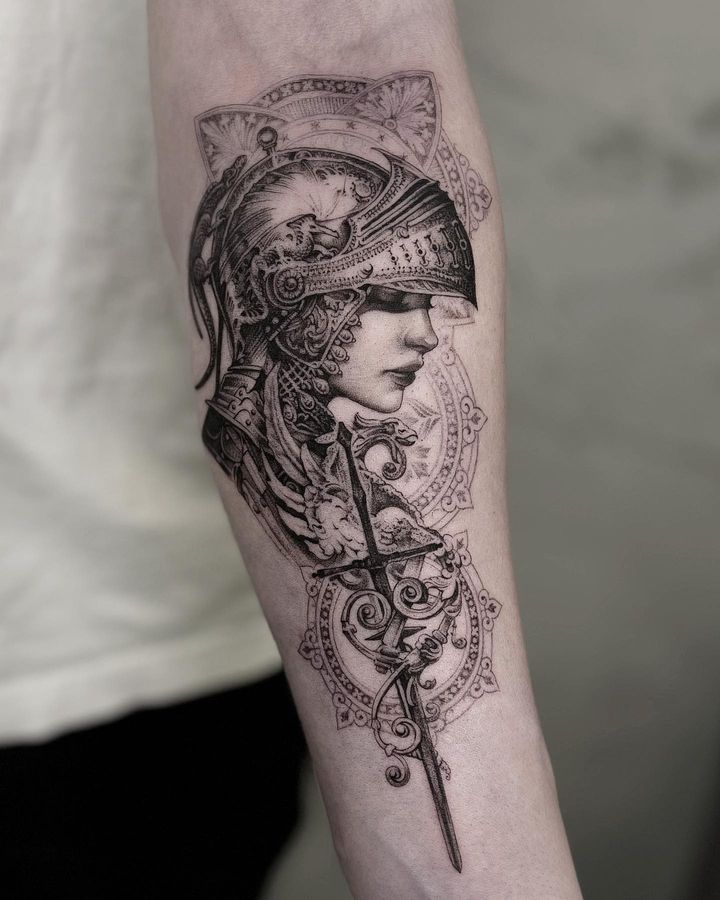
I started posting my art on Facebook, mostly just as a creative outlet, and to get some feedback on what I was drawing. This ultimately led to my in, and it was because of these drawings that I was contacted by the person who ended up being my mentor, Mark Wosgerau of Sinners Inc.
He invited me in to show my portfolio, and pretty much hired me on the spot. Back then, it was very much learning by doing, and it wasn’t many weeks until I started tattooing. At this point, I didn’t even have a single tattoo myself, but that quickly changed.
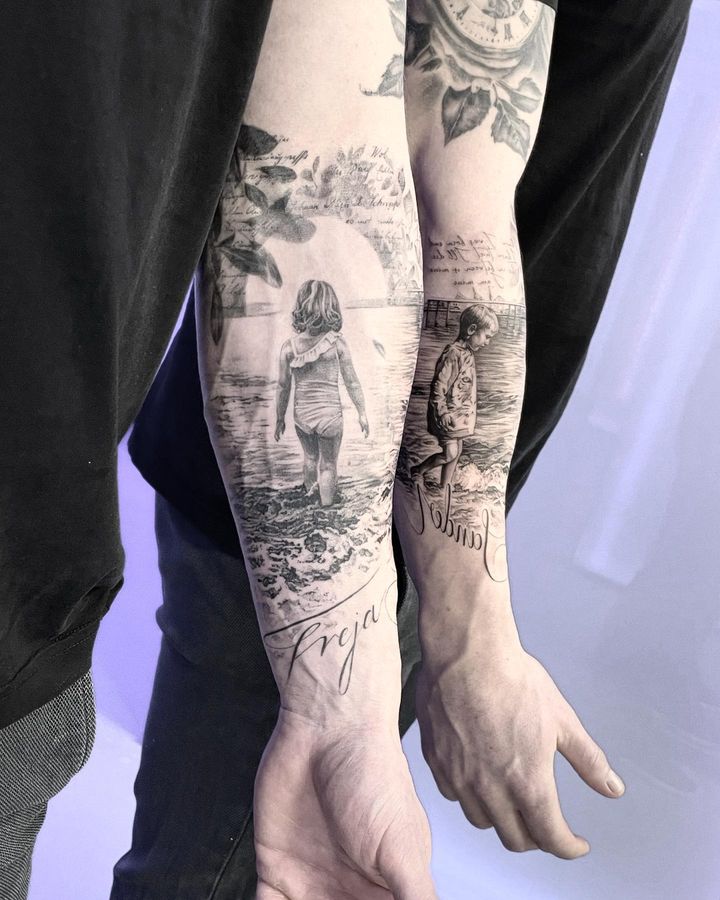
As far as difficulties in mastering this profession? First of all I don’t feel like I’ve mastered anything, and second of all, yes everything every day. I’m under the impression that if you aim high enough, nothing is easy. It can come naturally to you, and you can have an inept ability to relax in certain aspects of tattooing, but that doesn’t mean that it’s easy.
Is tattooing art, work or something else for you?
- Tattooing to me is all of the above. It’s an art form, it’s a craft, it’s a passion, and it just also happens to be something that I managed to turn into my work, and for this I am incredibly grateful.
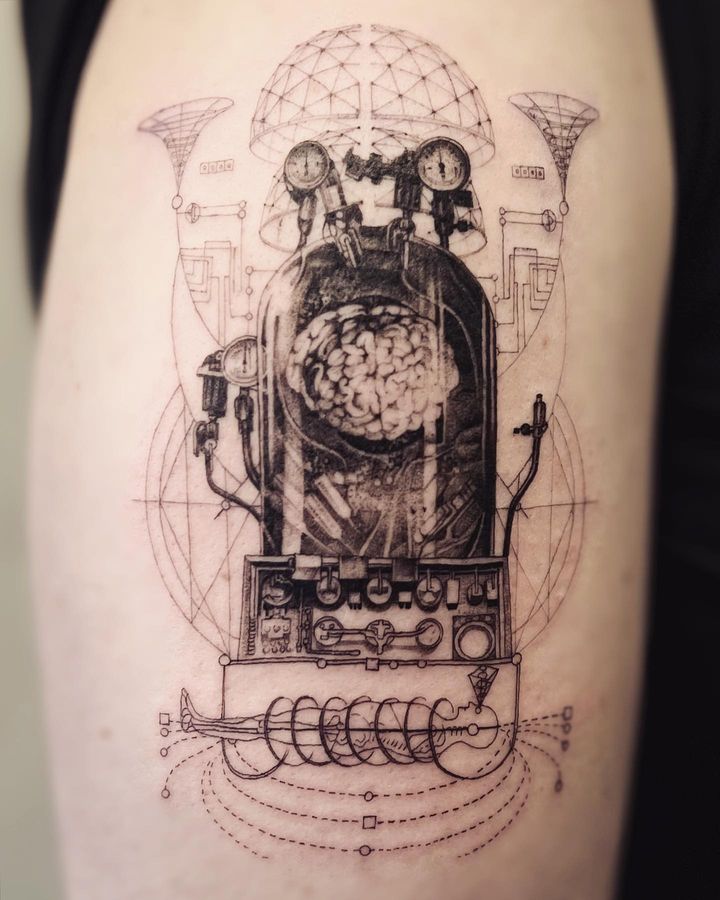
In your portfolio, there are many fantastic and complex works that combine elements of graphics, micro-realism, and geometry. What do you call your style yourself? And what are the distinctive features of your work that you highlight on your own?
- That’s a question a lot of us have a hard time answering, and honestly think it’s really difficult to decide how many subcategories of realism we want/need. My conclusion is that what I create can be described as magical realism. While many of the elements I use are realistic, I also pull a lot of inspiration from mystical, surreal and spiritual stories and motives. So the technical execution of my tattoos can be categorised as micro realism, but when it comes to the subject I’d like to call it that; magical realism.
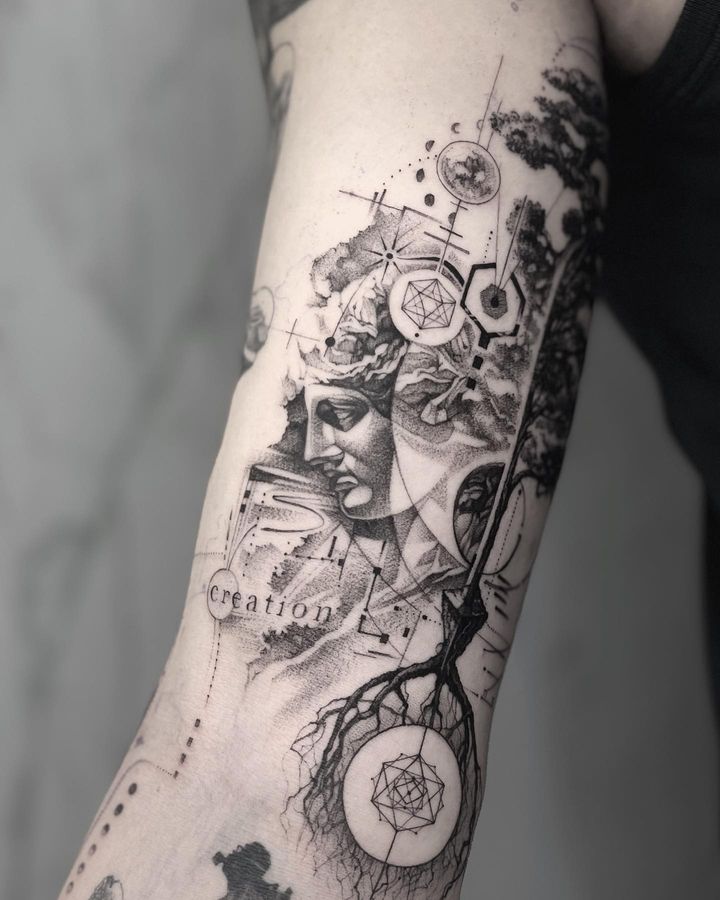
I like to think some of the distinctive features in my work can be attributed to my knowledge of different directions within art history, which allows for me to pull on a lot of references that you might not otherwise see that often. When I create a tattoo, it very rarely consists of less than 10 references, combined with my own tweaks as well as hand drawn elements when it makes sense, and I believe it sets me apart from other artists within micro realism. One of the things I think about in every tattoo I create, is contrast; not only in shade values between light and dark, but between soft and sharp, realistic and abstract and in a general dualism that keeps the eye wanting more.
What is the most important thing for you in a tattoo?
- One of the most important things for me when it comes to tattooing, is the technical execution, but also - and especially - the interaction I have with my client on that particular day. I pride myself on my consistency not only in the technical result, but also with the impression I leave with the people I am fortunate enough to work with. It’s something I hold incredibly dear, and never want to compromise.
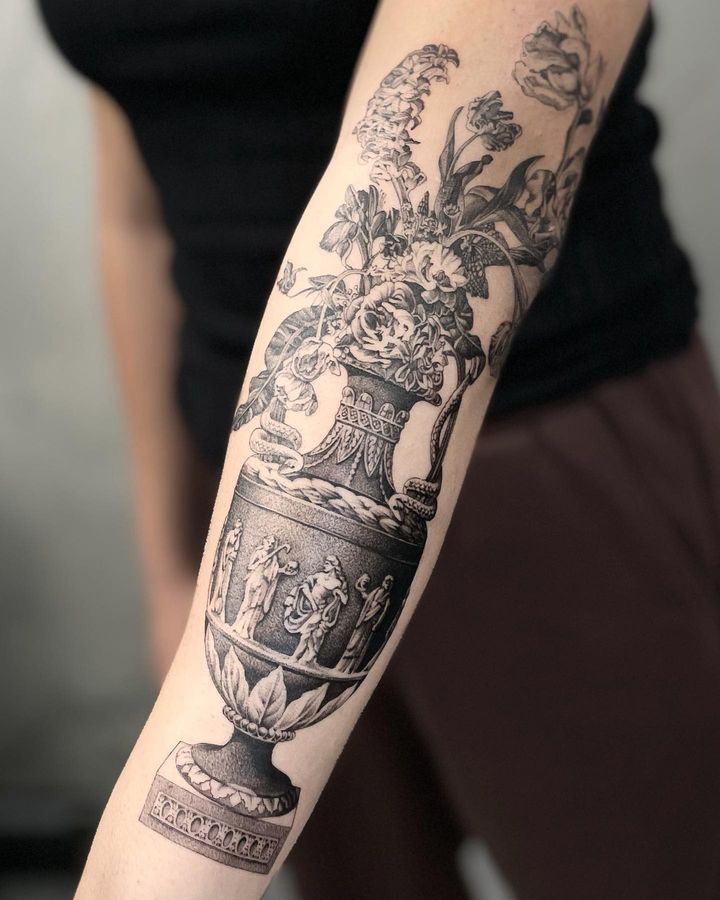
Where do you draw inspiration from?
- I draw a lot of inspiration from my friends within the industry, but also, as before mentioned, the many directions within art that I really appreciate. Some of these being surrealism, Pre-Raphaelite, Hellenistic and antique art. In the present years I have made an effort to find inspiration outside of the tattoo industry, as I feel like micro realism can have a tendency to become a bit repetitive, and the balance between inspiration and imitation a bit blurred.
Let’s talk about your career. How do you rate your popularity and how do you think it can be measured?
- Rating popularity within tattooing is difficult, unless you use something that is as tangible, but sometimes reductive, as follower numbers, waitlist or rate. To me, important factors are; do I have the freedom to do things that I’m passionate about? Am I able to create the art I want to create? Am I booked up to the extent that I am not stressed about my financial status? And have I been able to position myself as a respectable person as well as an artist? While I believe I can tick the boxes of the points above, there is definitely room for improvement in all of them.
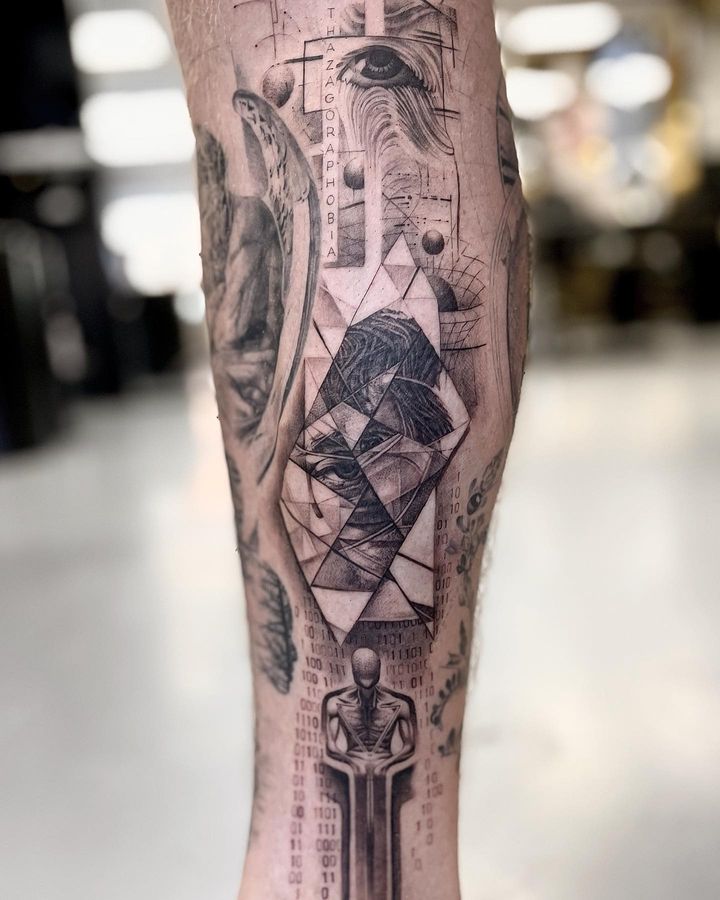
One thing I’ve always been incredibly proud of, which I believe attests to my technical abilities, is the fact that I have tattooed a lot of fellow tattooers. So to me, being popular within a crowd of my peers is a very valuable aspect of popularity as an artist.
You have a huge number of followers on social media, including both collectors and professional tattoo artists. Can you give a piece of advice based on your own career on what new tattoo artists should do to follow in your footsteps?
- This is a tough one, as it really depends on what subject we are talking about. Is it the mental side, technical, networking or something completely different. But I guess one of my most important learnings has been, to stay kind. I went through a period in my career, when I saw people, who were technically less capable than me, and who didn’t treat their clients well; they got a lot of praise, as people were attracted to their mystique and badassery. It made me feel really torn on whether I was doing something wrong, and needed to just “not give a fuck” and be this illusive artiste that apparently people were demanding, or so it seemed.
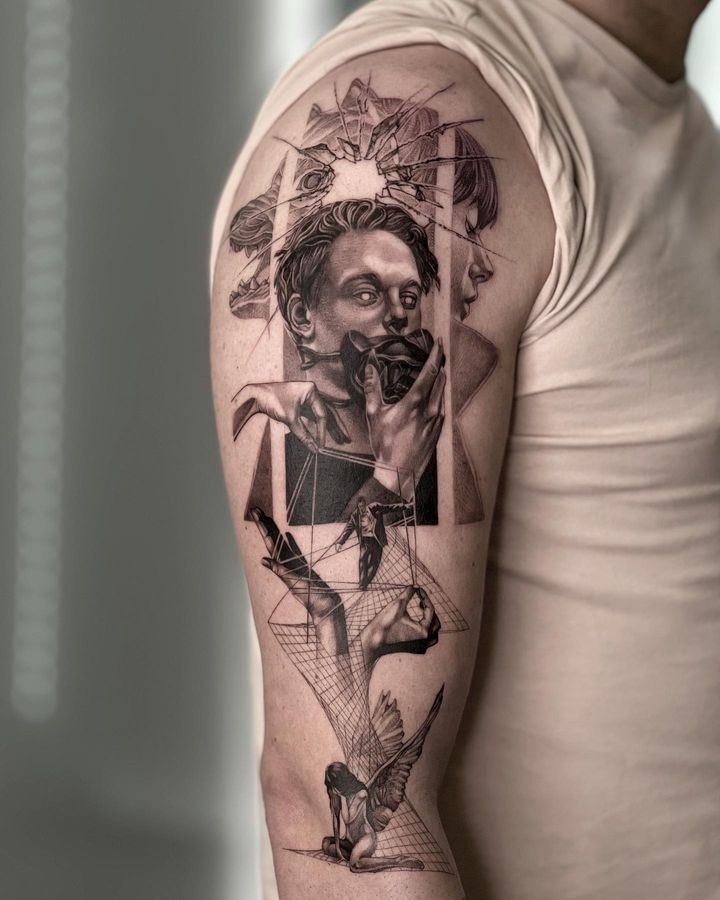
I’m incredibly happy that I found peace and value in being myself, which has resulted in some very gratifying relationships with long lasting clients, as well as co-workers and friends from within the industry. It didn’t give me the amount of followers, press or even rates as some of the before mentioned tattoos, but it’s granted me longevity and loyalty, which to me is far more important in the long run.
Do you travel a lot for work? Where and with whom have you had the opportunity to work? Could you tell me about the most significant experience for you?
- I started doing guest work after maybe 4 years of tattooing, and since then, it’s something I’ve done consistently. Some of the artists I’ve worked with, who have had the biggest impact on my tattooing as well as mindset, are people like Bartosz Panas, Kuba Kujawa, Mads Thill, Oscar Akermo and Snuffy. Listed chronologically, these artists represent huge influences in my work as well as life, and are indicative of the style changes I’ve had throughout time; from neotraditional to more conventional realism, to what I do today.
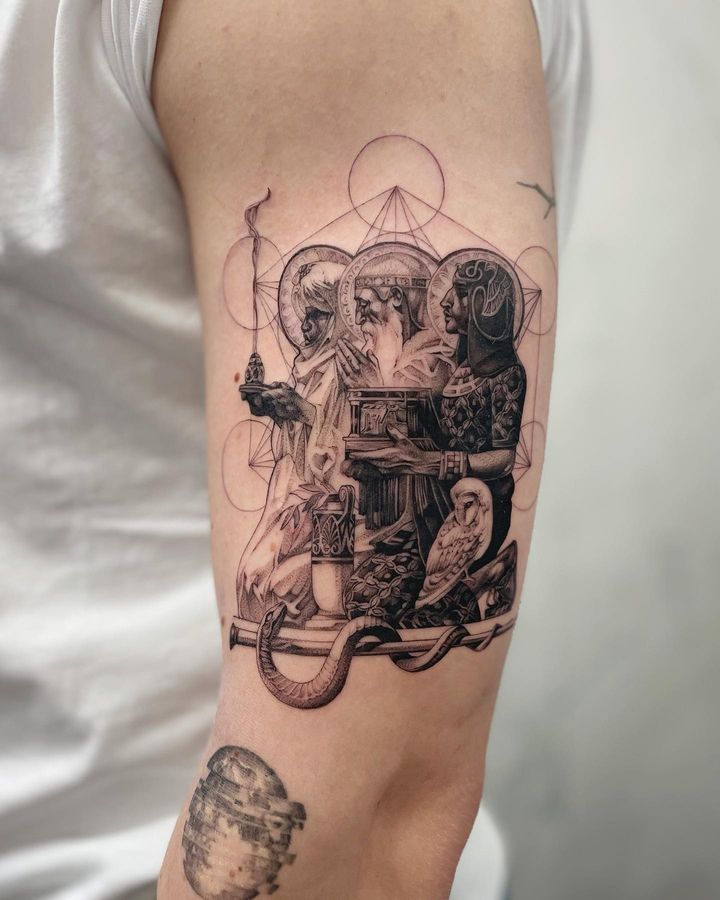
Luckily, there are many significant experiences, but working, learning and doing conventions alongside Kuba Kujawa, Mads Thill and Bartosz Panas changed my tattooing and mindset completely, Oscar Akermo became one of my closest friends and has been a huge influence for me ever since, and Snuffy has taught me so much about the mindset that’s necessary to keep your integrity as and artist and person, not just tattooer; while connecting me to a whole new world of creatives outside the sphere of tattooing.
Which country do you consider to be the best for a career in tattooing and why?
- That really depends on what kind of style you’re doing, if you ask me. In my humble opinion, Spain has the best neotraditional artists, Eastern Europe the best colour realism, Germany the best within more progressive styles such as abstract tattoos and neotribal, and South Korea and specifically NYC the best within micro realism.
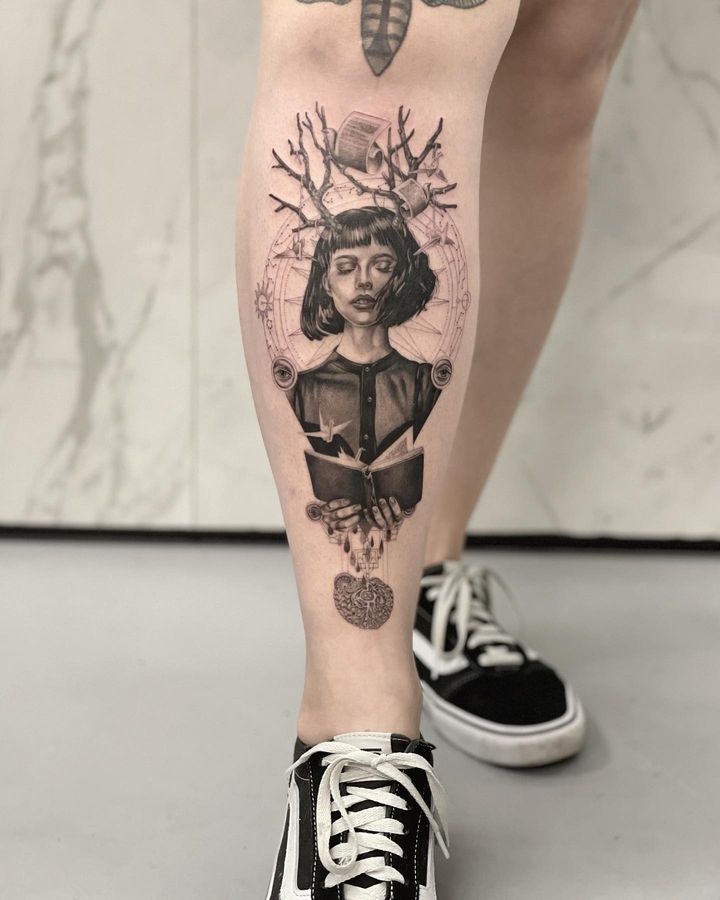
How about tattoo conventions? Can you share your experience?
- I have worked quite a few tattoo conventions in the past, but not the past 5 years or so, which is the period when I pivoted more towards the style I’m doing now. To my knowledge, there aren’t really any conventions that cater to the style that I do, as conventions are simply an older concept that comes with the expectation of very clean cut styles. Traditional, black and grey, colour realism, large scale and so on; and my work rarely fits into neither category.
Also, I like comfortability, for me as well as my clients, and that is not something that can be ensured at a convention; so I don’t feel like I deliver my best work at a convention, and that’s something I’m not willing to compromise.
I do, however, love conventions for the social aspect; meeting up with artists I don’t normally see in day to day life, but miss from guesting, previous workplaces or other conventions.
In the beginning of my apprenticeship, it was also a unique opportunity to meet my tattoo idols, and get a chance to watch them work.
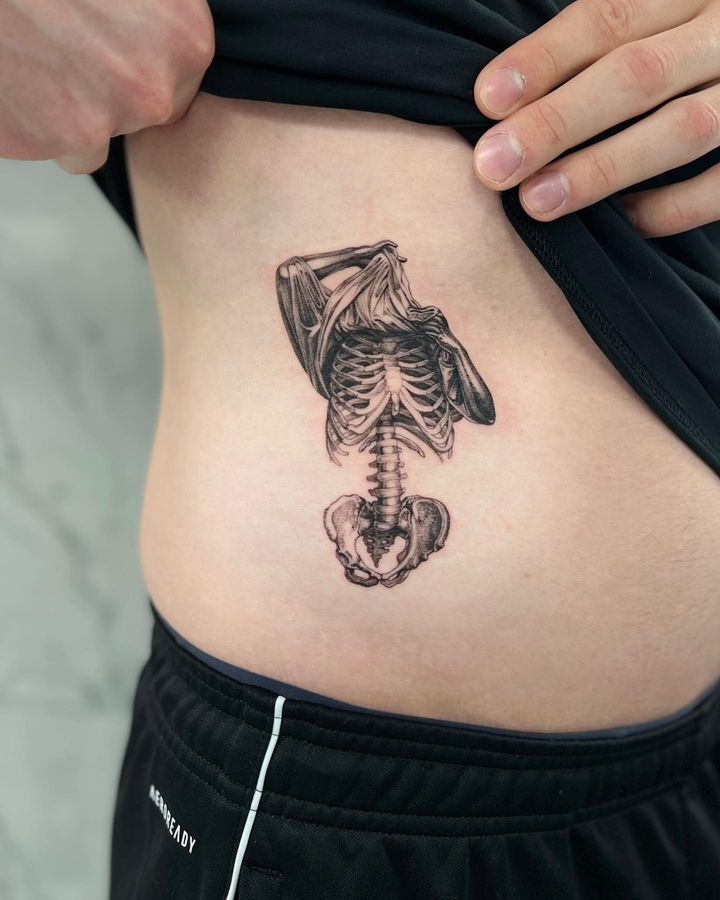
We know that you are one of the organizers of The Remote Tour for tattoo artists from different countries. Please tell me about this project. And how popular are tattoos in your country? What are your career goals?
- Together with my business partner and one of my closest friends, Mads Thill, I have founded an event called The Remote Tour, where we facilitate multidisciplinary creative exchange in the most beautiful surroundings at Art Villas Costa Rica. We are a mix of tattooers, painters, sculptors, musicians, photo- and videographers amongst other fields from all around the world, who get together to create and inspire at a gorgeous resort in the rainforest of Costa Rica.
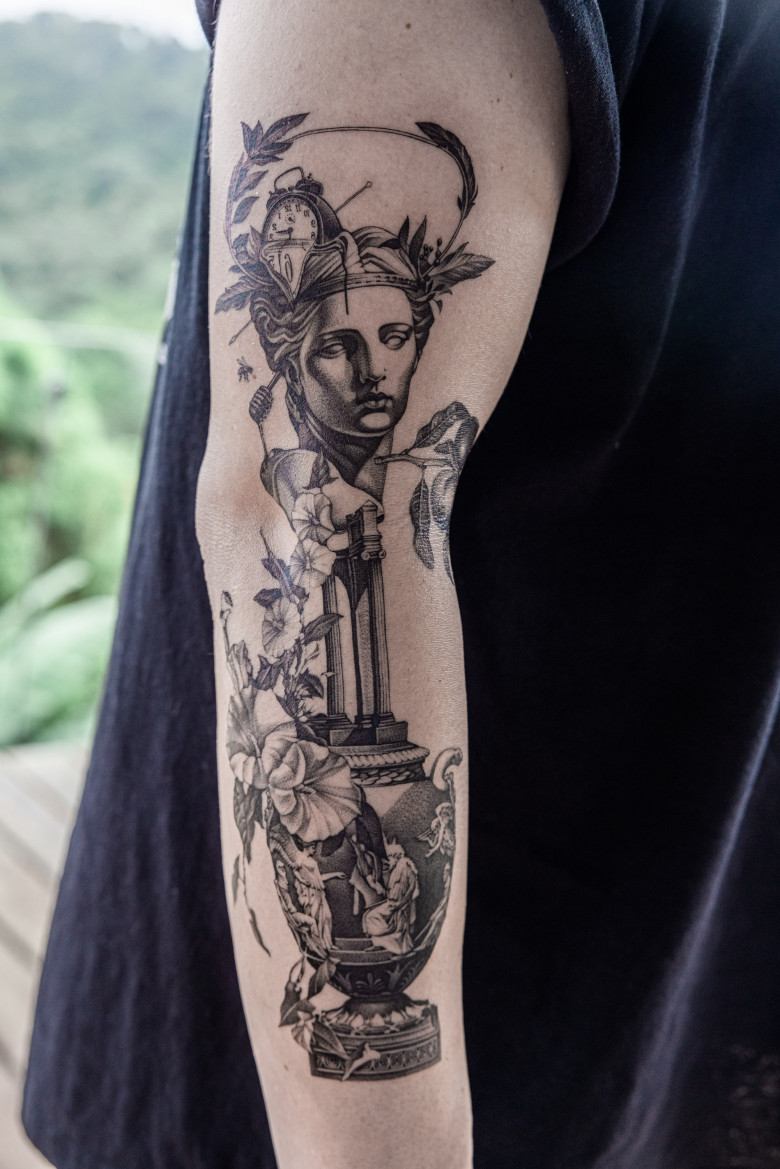
Tattooers have clients flying in, some of them who stay with us at the resort, and some of them local, who join us for one or multiple days. It was something that happened incredibly organically, and we intend to let it keep developing just like that. Other than Costa Rica, we intend to do tours in Europe, Asia and North America as well, and are excited to welcome new artists from other fields of expertise as well.
Tattoos are incredibly popular in my home country of Denmark, and it was something we all thought was peaking back when I started out close to 12 years ago, but has only gained popularity since then.
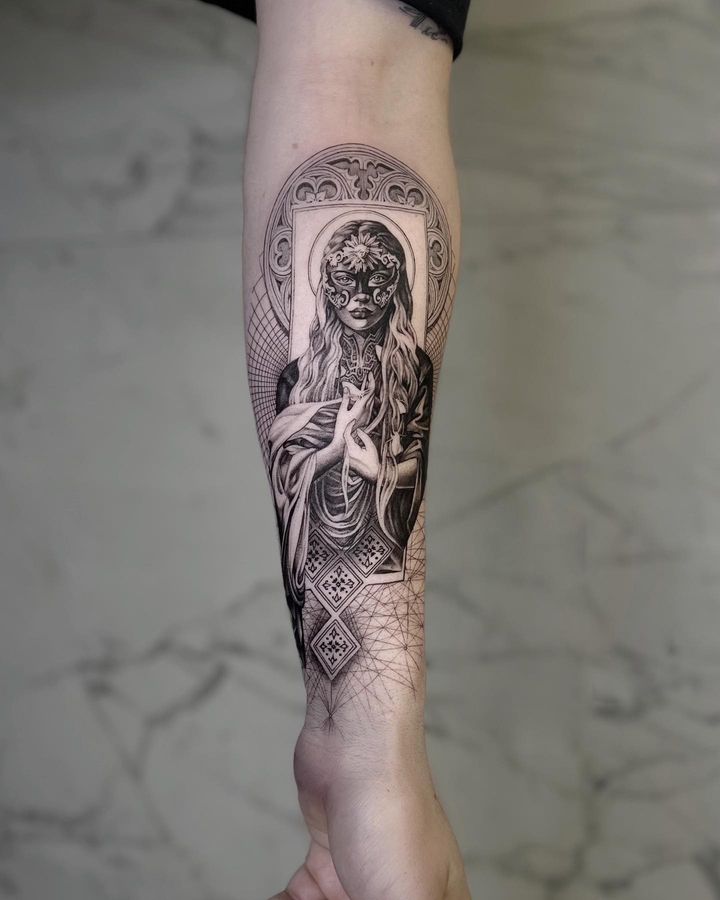
Tell us about your plans for the near future.
- I’m currently working on executing the intentions we have with The Remote Tour, so we can introduce our artists as well as clients to new amazing locations.
In addition to this, I’m doing collaborations with clothing brands and projects that bridge the gap between tattoo culture and web3, as I am fortunate enough to be around prolific people from within this sphere, which was otherwise a mystery to me. Lastly, as I have mentioned before, I have tattooed many fellow tattooers, and this has garnered a fair bit of demand for projects such as technical seminars, which cater towards intermediate and more experienced tattooers. This is opposed to many existing seminars, which are often marketed towards people who are just starting out, or have yet to embark upon their tattoo journey, in which case I prefer a more hands on approach that an online seminar can’t ensure.
All in all, I am very excited to see what this coming year has to offer, as it will be defining some new directions in my career, which I previously haven’t had the courage to indulge in; but now, the time feels right.
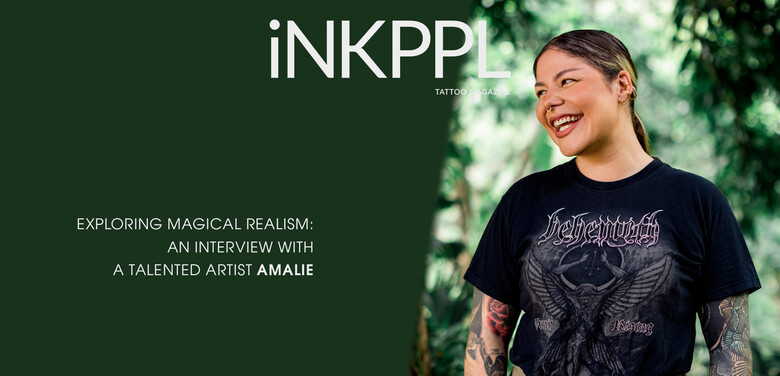

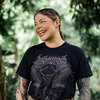
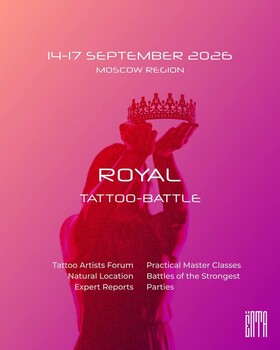
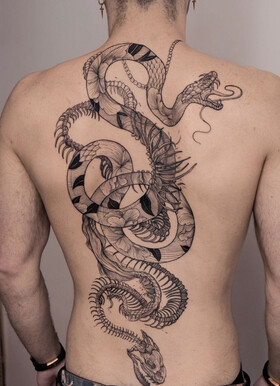
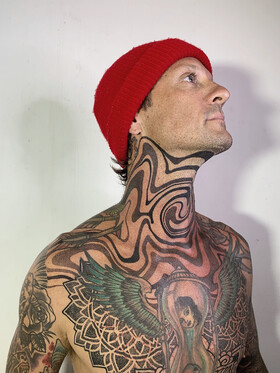
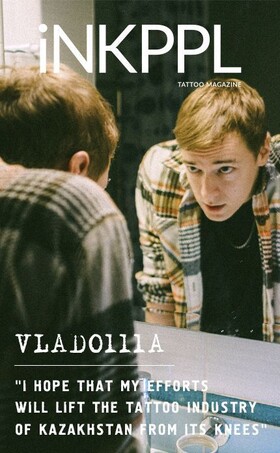
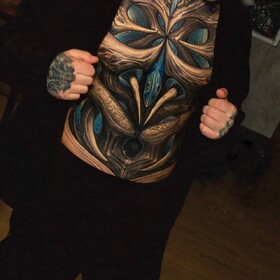
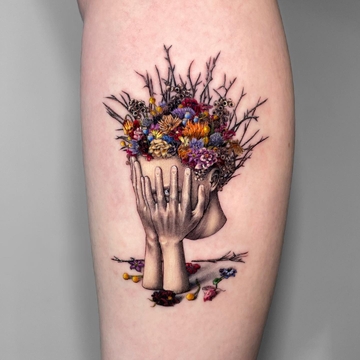
Comments (0)